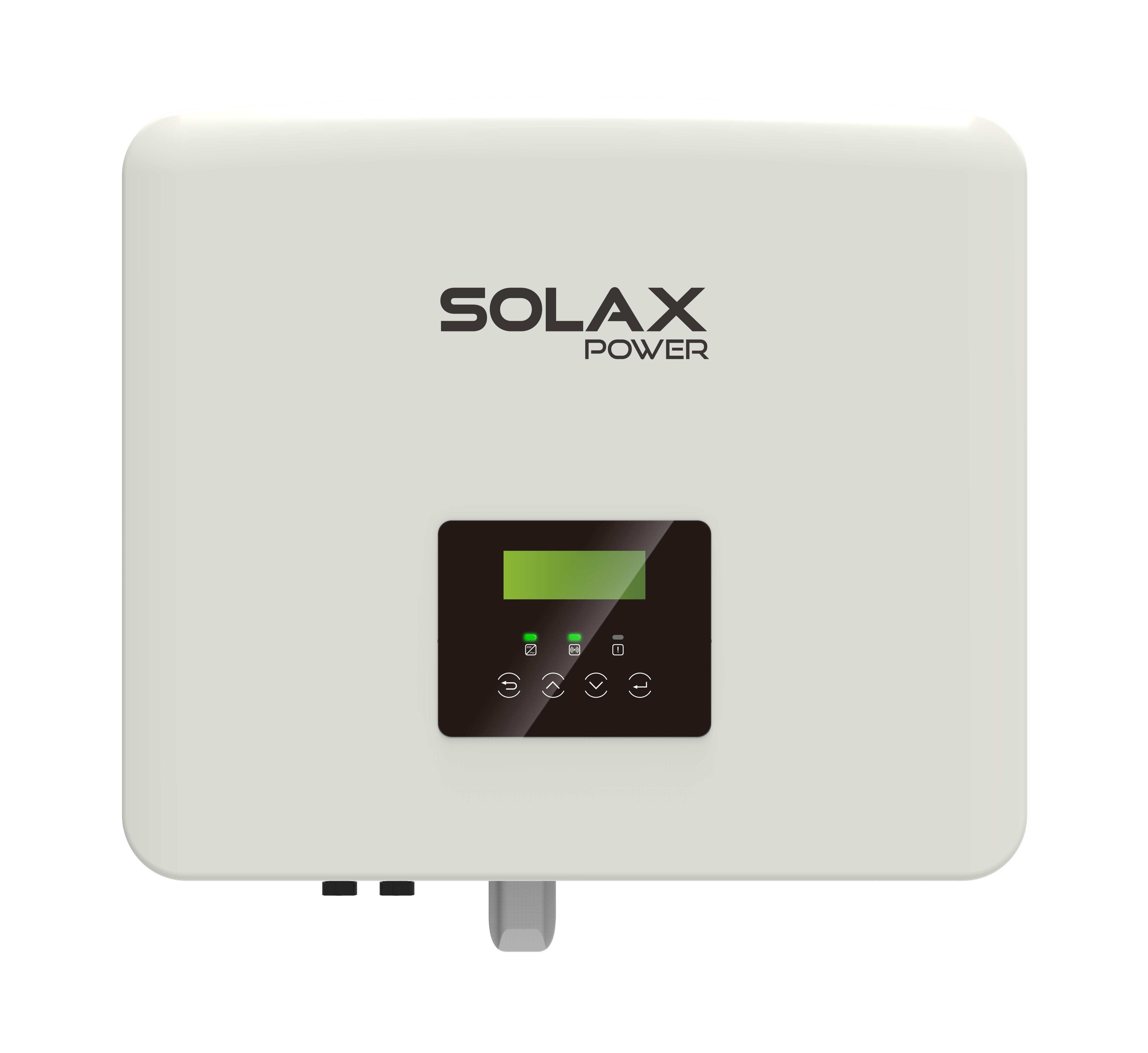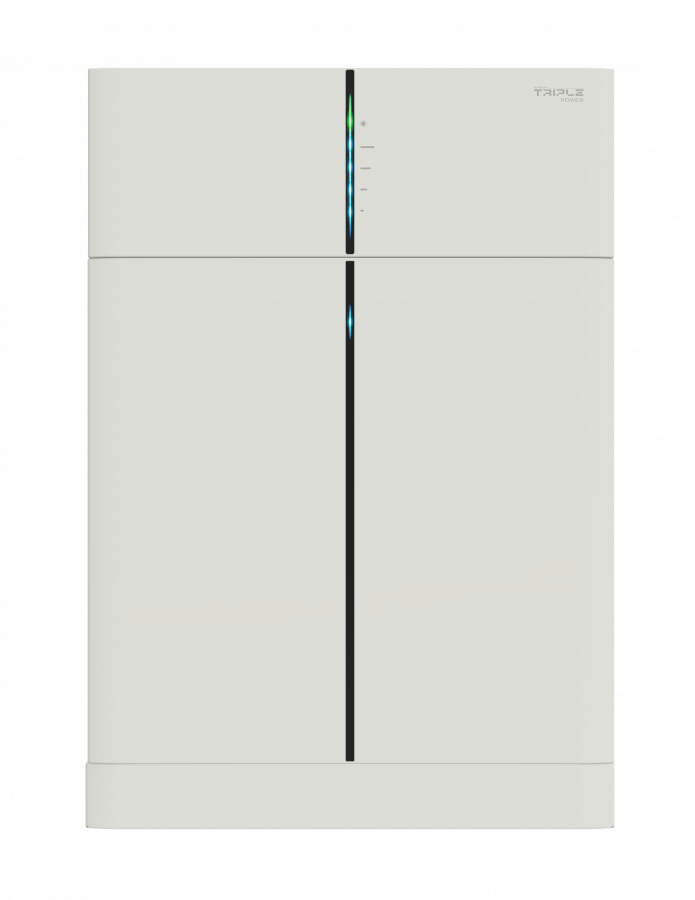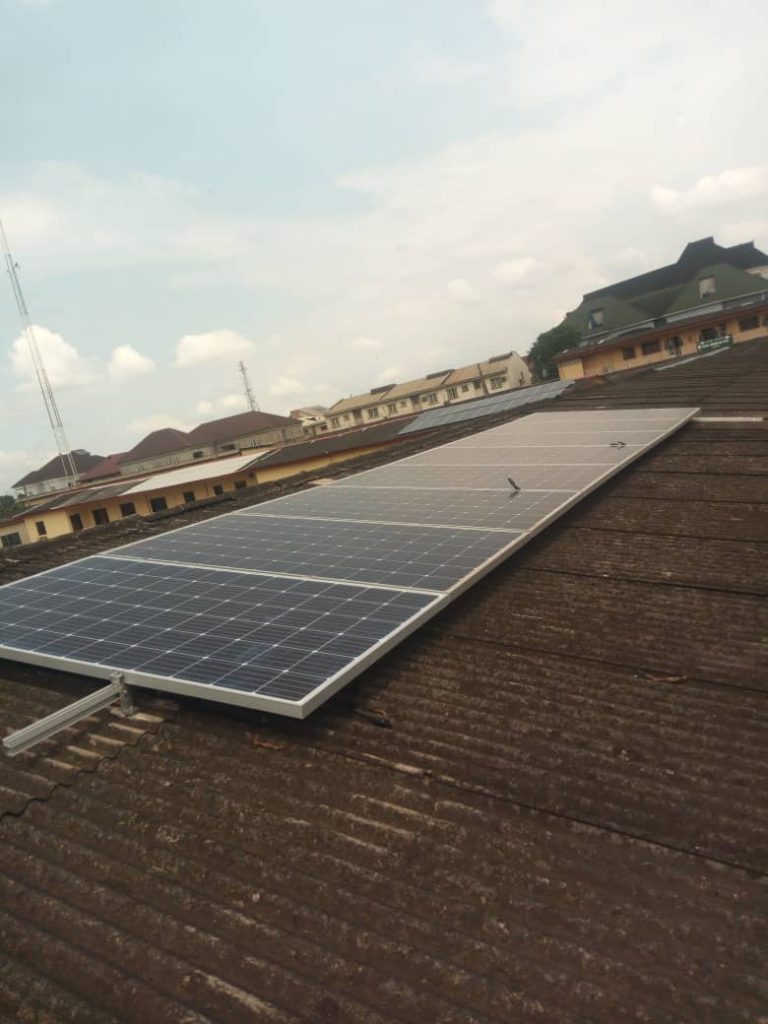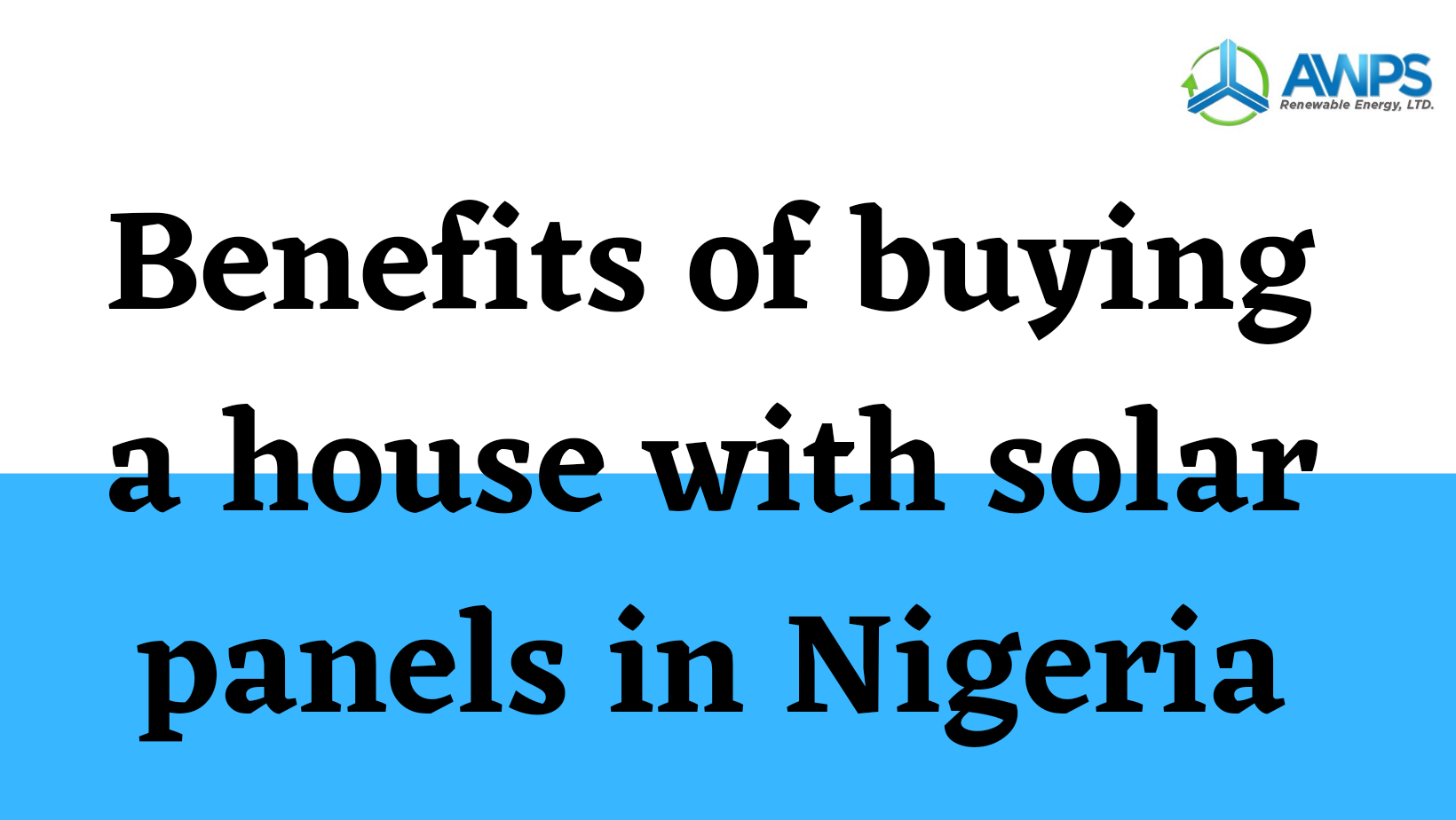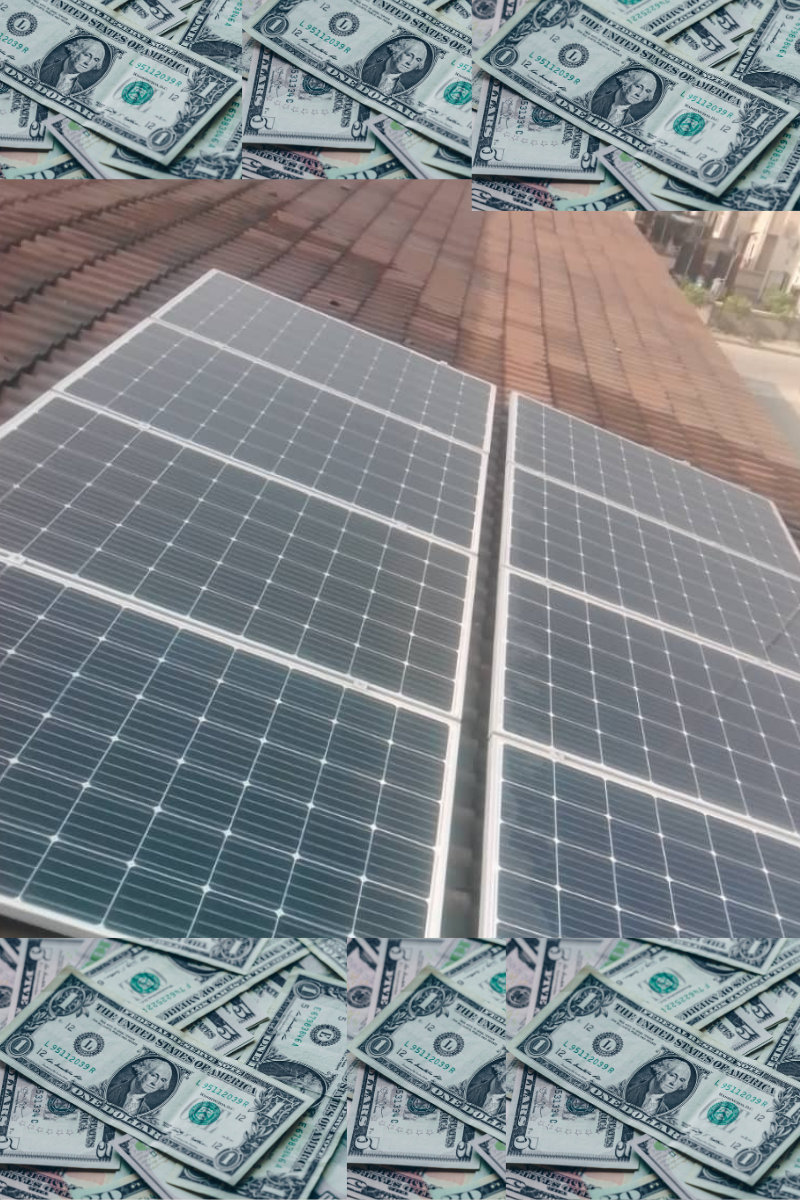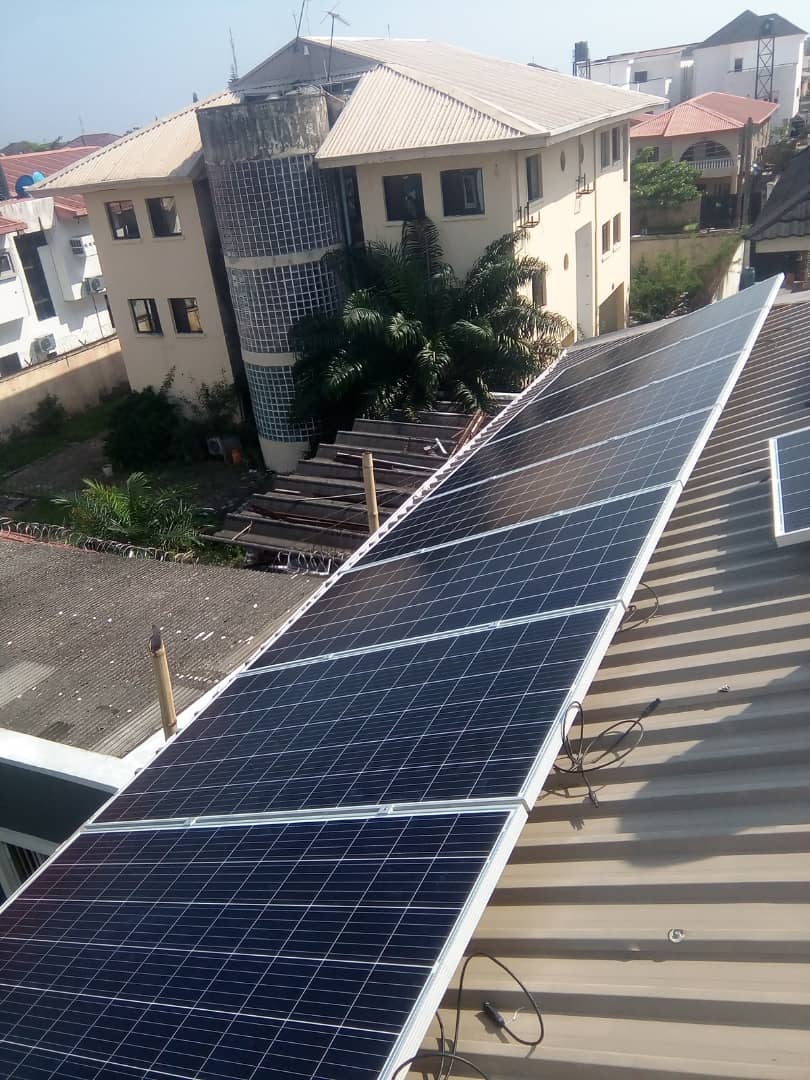Power problems: Could solar solve Nigeria’s electricity woes?
Hungry for energy, millions of Nigerians put up with noisy, smoky petrol-fuelled generators to power their lives. Could solar technology help?
![An estimated 22 million small-unit generators are in use by Nigerians, and they plug a vital gap in a country that ranks 171 out of 190 nations in terms of access to electricity, according to the World Bank [File: Sunday Alamba/AP Photo]](https://www.aljazeera.com/wp-content/uploads/2021/09/AP100824153199.jpg?resize=770%2C513)
Ilorin, Nigeria – On a recent Monday morning, Mathew Bello, popularly known as Matey, switched on the generator that powers his shop in the capital of Kwara State at exactly 9:28am. It sputtered for a second before roaring to life, coughing up clouds of grey smoke in the process.
Inside Bello’s multipurpose shop are places to watch television, play video games, get a haircut and fix a mobile phone. As David, Bello’s apprentice, transferred the shop’s fuse box from the utility grid — which was currently experiencing a blackout — over to the generator, the TVs lit up and hair clippers buzzed to life.
On that day, Bello’s generator did not go off until 12am, after 14 hours and 32 minutes of non-stop work.
“Sometimes there’s NEPA light,” Bello told Al Jazeera, referring to power from the city’s electrical grid, the Nigerian Electricity Regulatory Commission. “But it’s low current,” he said – and not enough to meet the power demands of his shop.
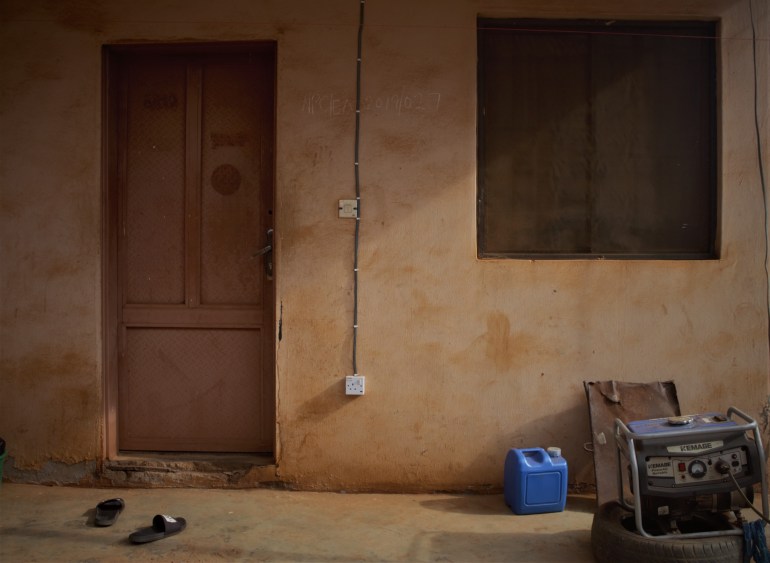 A petrol-powered generator sits outside a home in Ilorin, Kwara State, Nigeria, where people rely on the noisy machines to power their everyday lives [Olatunji Olaigbe/Al Jazeera]
A petrol-powered generator sits outside a home in Ilorin, Kwara State, Nigeria, where people rely on the noisy machines to power their everyday lives [Olatunji Olaigbe/Al Jazeera]Bello’s generator consumes between 17 and 27 litres of petrol each day, he said, which costs him between 2,500 naira ($6.08) and 4,000 naira ($9.72) by the country’s official exchange rate. Then there is an additional 1,500 nairas ($3.65) per week to gauge and change the generator’s oil. A mechanic comes for maintenance and repairs three times a month, costing at least 1,000 nairas per visit ($2.43) in addition to the cost of any spare parts.
All told, Bello’s monthly spending for his generator averages around 100,000 naira ($243.01) to 130,000 ($315.92). But his monthly earnings amount to 170,000 naira ($413.12) at most, and he is able to buy less each month as the prices of fuel, food and other daily necessities skyrocket.
Amid the coronavirus pandemic, Nigeria is dealing with its worst levels of inflation in four years. Bello is concerned that passing on increased costs to his customers would cause him to simply lose business.
Haircuts, video games and TV time are not considered necessities, meaning people will likely stop patronising his shop if he charges more. His story is just one example of the economic and human cost of Nigeria’s electricity woes.
Hungry for power
An estimated 22 million small-unit generators are in use by Nigerians like Bello, and they plug a vital gap in a country that ranks 171 out of 190 nations in terms of access to electricity, according to the World Bank.
Nigeria’s grid has an installed capacity of roughly 12,522 megawatts, but due to poor infrastructure, it is only able to deliver around 4,000 megawatts most days, according to the US Agency for International Development.
As of February, 43 percent of Nigerians still had no access to on-grid electricity, according to the World Bank, and Nigeria loses $26.2bn annually (the equivalent of two percent of its gross domestic product) due to the lack of reliable electricity.
 Along with the financial cost of petrol-powered generators are the noise and pollution they generate [File: Sunday Alamba/AP Photo]
Along with the financial cost of petrol-powered generators are the noise and pollution they generate [File: Sunday Alamba/AP Photo]To bridge the gap between supply and demand, Nigerians are forced to generate power in small units from off-grid sources, usually fossil fuel-powered generators.
Along with the financial cost of generators are health and environmental costs. Two out of three generator users in Nigeria complained of hearing impairment, according to data cited in a 2019 report (PDF) by the Access to Energy Institute (A2EI), a non-profit research and development institute working to advance the use of solar energy in developing countries.
“The noise is delirious,” Quadri Oladayo, a student who uses his own generator to read and work as a freelance photographer, told Al Jazeera. “Every time a nearby generator goes off, it’s like a part of your soul you never knew was missing returns.”
Most Nigerians are aware of more health and environmentally friendly options such as solar energy, but cost, quality and lack of expertise make implementing them difficult. That is why more investment in solar energy is needed, said Segun Adaju, the president of the Renewable Energy Association of Nigeria.
“If $2bn is invested in the solar energy sector, most businesses can run comfortably on 8 to 12 hours of energy provision daily,” Adaju told Al Jazeera, adding that such an investment would also provide “room for industrial growth and confidence in the investor market”.
Solar potential
Nigeria gets between five to seven hours of sunlight daily, depending on the region. A 2019 report (PDF) by the director-general of the Energy Commission of Nigeria estimated that if one percent of Nigeria’s land area were to be covered with a solar technology of five percent efficiency, about 333,480 megawatts of electricity could be generated, which is “more than enough for the country”.
Experts believe that solar power in Nigeria is currently underutilised.
For example, Nigerians are likely to own a solar-powered torchlight, solar-powered fan and perhaps solar-powered refrigerator, but each comes with its own solar plate and energy generation unit, rather than plugging into a single solar generator capable of powering an entire house and every appliance.
A solar generator with the capacity to power all of those devices is barely available on the market and inaccessible to the majority of low- and middle-class Nigerians. A high-capacity solar generator can cost well above 400,000 naira ($972.05). By comparison, the monthly minimum wage in Nigeria is 30,000 ($72.90) naira. And even when Nigerians can afford them, there is still a dire lack of expertise to help people maintain solar-powered generators.
 Cost remains a major barrier for Nigerians who want to switch from petrol-powered generators like this one to solar-powered generators, which can cost more than 10 times the monthly minimum wage [Olatunji Olaigbe/Al Jazeera]
Cost remains a major barrier for Nigerians who want to switch from petrol-powered generators like this one to solar-powered generators, which can cost more than 10 times the monthly minimum wage [Olatunji Olaigbe/Al Jazeera]And for business owners who have higher energy demands, cost is a major deterrent. For his part, Bello said he has considered solar energy many times but has been dissuaded by the price as well as the potential output.
“I’ve never seen a solar power that can power five TVs and three clippers,” he said.
Thomas Duveau, the chief strategy officer at A2EI, said the current petrol-powered generators are favoured by people because “they serve that energy demand”, and “they do it quickly and in the cheapest way possible – at least in the short term”.
But A2EI is hoping to help Nigerians make the move to solar, and has been working on the project since 2016.
To get a grasp on people’s energy needs, the group installed smart monitors on 300 petrol-powered generators in Wuse market in Abuja so they could monitor metrics such as energy output, fuel consumption, how long each generator worked and even the frequency of faults.
“We then used this information to construct our solar generators, making sure they can outperform the fossil-fuel generators,” Duveau told Al Jazeera.
But matching petrol generators’ output has only been part of the challenge.
“Our biggest hurdle has always been finance,” Duveau said.
Financial challenges
In 2019, before the coronavirus pandemic hit, A2EI shipped about 200 solar generators to Nigeria, which were priced at $700 per unit.
The pandemic delayed customs processing on the generators, Duveau said, and impacted the economy more broadly. Last year passed without A2EI selling the solar generators.
By 2021, the value of Nigeria’s currency had fallen to 411 naira to the United States dollar, with the black market value well above that.
The solar generators still cost $700, but that is now 288,050 naira — 22,000 naira more than when they were first shipped.
To deal with this issue, A2EI said it partnered with Nigerian banks and other financial institutions to provide subsidies and credit to help Nigerians buy its solar-powered generators. Duveau said they have also approached the Nigerian government for support, but have been met with no concrete response.
Renewable energy investments
In December 2020, the Nigerian government launched the Solar Power Naija programme, an ambitious project targeted to provide solar electrification to 25 million Nigerians who were not previously connected to the grid.
The programme plans to provide five million new off-grid or mini-grid connections and “incentivise the creation of 250,000 new jobs in the energy sector”, according to its website.
However, since the programme’s inception, the Rural Electrification Agency — the agency in charge of the programme — has so far deployed 100,000 solar home systems.
As the push to get solar-powered generators up and running struggles to get off the ground, Bello’s petrol-powered machine keeps on going, belching out grey smoke and incessant noise — just like his neighbours’ — and sapping his earnings in the process.
